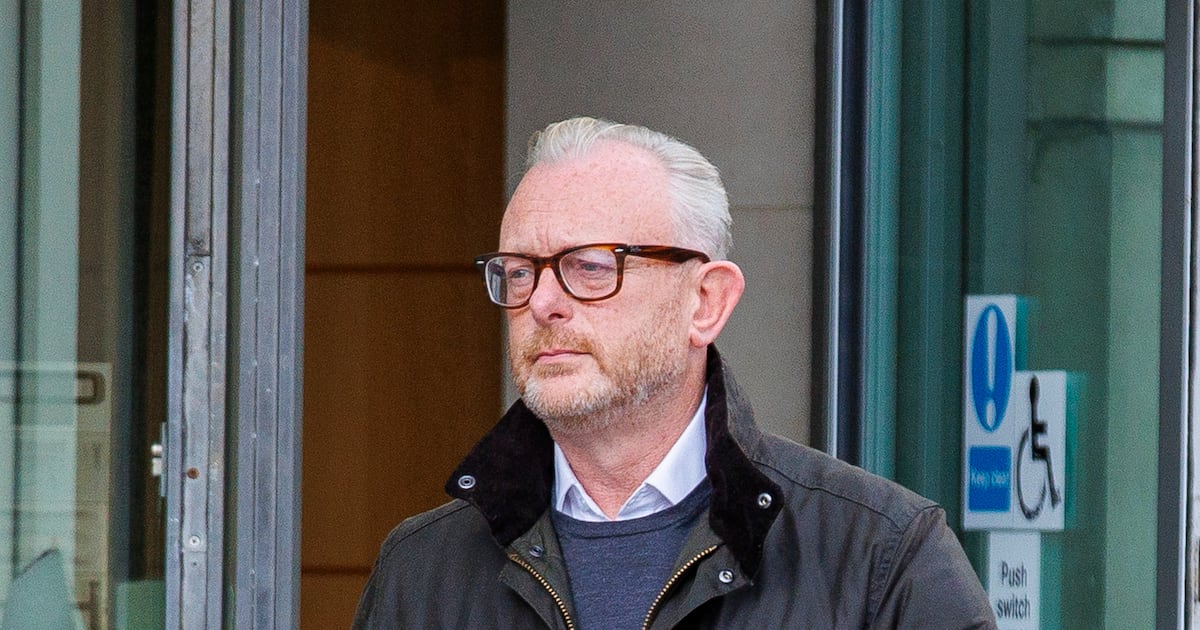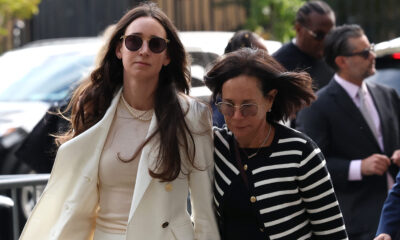Business
Two prominent businessmen accused of fraud over £1bn Nama loan deal were ‘motivated by greed’, court hears

Read more on post.
Two prominent businessmen accused of fraud over a £1 billion (€1.2 billion) loan deal were “motivated by greed”, a Belfast court has heard.
On the opening day of the trial, jurors were told that Frank Cushnahan (83), of Alexandra Gate in Holywood, Co Down, and Ian Coulter (54), of Templepatrick Road in Ballyclare, Co Antrim, “acted dishonestly” to ensure they got a cut of “massive profits”.
The defendants deny the charges.
The case relates to the sale of a loan book held by the National Asset Management Agency (Nama), which was set up by the Irish Government to deal with toxic property loans post the banking crisis in late 2008.
Nama’s Northern Ireland loan book was sold to a US investment fund in 2014 in a deal code-named Project Eagle.
Prosecution barrister Jonathan Kinnear KC told jurors that Mr Cushnahan, a high profile businessman, was appointed to Nama’s Northern Ireland Advisory Committee in 2010 – a body set up to deal with property debts in the North – as an external member and paid €1,000 for every meeting he attended.
[ Nama Northern Ireland case adjourned until next weekOpens in new window ]
Membership of this committee gave Mr Cushnahan access to “the top echelons of power in Northern Ireland”, Belfast Crown Court heard.
He was known and “indeed trusted” by many prominent politicians, including the then Stormont finance minister, Sammy Wilson.
Mr Coulter was a solicitor and former managing partner of Tughans, one of the largest commercial law firms in the North.
The defendants were” heavily involved” in the brokering and arrangement of the Project Eagle deal.
They worked to persuade politicians “in both Dublin and in Belfast” that the sale of the Northern Ireland loan book “would be a positive benefit to all”, the court heard.
“In return for their work, they were to be paid millions of pounds each, we say, from a ‘success fee’, of about £15 million,” Mr Kinnear said.
“Motivated by greed, they both acted dishonestly, withholding information and providing false information to ensure they shared in the massive profits that were available.”
The trial is expected to last up to 12 weeks and the prosecution barrister told jurors that while the story “is long”, it is “not particularly complicated.”
“Ultimately you will need to decide if the defendants acted dishonestly,” he added.
Providing an overview of the charges, Mr Kinnear pointed to the defendants in the dock where they sat a seat apart from each other.
Mr Cushnahan faces two fraud charges, with the first linked to him failing to disclose information to Nama between April 1st and November 7th, 2013.
Both men are accused of making a false representation to Nama and a law firm in April 2014, with the intention of “making a gain for themselves or another”.
Mr Coulter is also charged with made a false representation to Tughans law firm on or around August 13th, 2014, namely a £9 million “false invoice”.
He also faces two counts of concealing or transferring criminal property on various dates in 2014, effectively “money laundering”, the court heard.
A further fraud charge relates to Mr Coulter dishonestly making a false representation to a law firm on or around September 11th, 2014, by causing an invoice of £7.2 million to be issued.
“Effectively it was an invoice that was completely made up and designed to ensure that £7.2 million was transferred from Tughans with an account in Northern Ireland to Morley, who we will see held an account that was controlled by Mr Coulter, in the Isle of Man,” Mr Kinnear said.
“Again, the prosecution’s case is that this is part of Mr Coulter’s plan to keep the vast majority of the money for himself and Mr Cushnahan.”
The prosecution barrister said they will rely on documents from Nama’s Northern Ireland Advisory Committee meetings to show that Mr Cushnahan knew what he was doing in terms of disclosing “any conflict of interest” that he had.
Minutes from meetings show the corporate financier disclosed he held shares in Paddy Power and was a director of the off-licence chain Wineflair Limited, among other interests.
“He knew what he had to do but when it comes to the crunch later on, he doesn’t make the disclosure he should,” Mr Kinnear told the jury.
He added: “Did Mr Cushnahan know what a conflict of interest was? Did he know what his duties were and that he had to report any conflict he found himself having? When we look at the documents, the prosecution will say that the answer to that question, you can be sure is a resounding ‘yes’.”
The trial continues.









